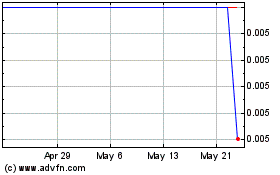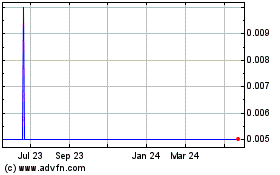Pangolin Diamonds Corp. (TSX-V: PAN) (the
"Company" or "Pangolin") is pleased to update its shareholders on
its recent activity at its kimberlite diamond projects in Botswana,
Africa.
Investment Highlights
Team has a proven track record
Dr. Leon Daniels co-founded African Diamonds (AIM: AFD) that had
ownership in the AK6 pipe (now known as The Karowe Diamond Mine
purchased by Lucara Diamonds).
- Dr. Daniels recognized for identifying the economic potential
of the AK6 pipe prior to acquiring ownership.
Dr. Chris Jennings, a special advisor to the Company, has been
involved in over 100 kimberlite discoveries world-wide with 70 in
Botswana, as well as Canada’s second diamond mine Diavik. Other
mines include: Gaghoo – GO25 (Botswana), Klipspringer &
Marsfontein (South Africa).
- He recently purchased a 2.6% GOR (Gross Overriding Royalty)
from Pangolin for $1.2M, whereby 20 kimberlite targets will be
collectively identified and planned to be drilled in 2019 (as set
out below in more detail).
- Dr. Jennings believes there is the potential to discover a new
diamondiferous kimberlite field within Pangolin’s
projects.
Two kimberlite project areas are 100% owned in
Botswana
- All projects located SE of the Orapa Kimberlite Field; closest
is ~40 km.
- A total of 45 diamonds have been recovered at surface in
soils.
- Plan in place to identify 20 high priority kimberlite drill
targets – and to drill the first 5 once all the data has been
compiled and reviewed that meets the selection criteria.
An option to acquire up to 75% of the
Orapa AK10 Diamondiferous Kimberlite Pipe 6 hectares in size has
been extend to December 31, 2019
- Located within the Orapa Kimberlite
Field and only 4.4 km away from AK6 (Lucara’s Karowe Diamond Mine)
and infrastructure.
- Positive kimberlite chemistry
recently processed by CF Mineral Research Ltd., owned by Chuck
Fipke who discovered Canada’s first diamond mine - The Ekati
Diamond Mine.
- AK10 chemistry demonstrates it has
the potential to have large +50 carat diamonds.
- A 500 tonne mini-bulk sample is underway to confirm
diamondiferous character and determine economics of the
kimberlite.
As previously stated by Dr. Leon Daniels, “Being
a co-founder of African Diamonds where I identified the potential
of the AK6 kimberlite (Karowe Mine), I am very excited about the
positive classification of the kimberlite indicator minerals of the
AK10 kimberlite to potentially host large +50 carat diamonds.
This is a step in the right direction for the Company to have a two
prong strategy with the ongoing 500 tonne mini-bulk sample of the
AK10 kimberlite to confirm the reported diamondiferous character of
AK10, dove-tailed with our own exploration activities in search of
a new diamondiferous kimberlite field in Botswana where we have
recovered 45 diamonds in soils roughly 90 km SE of the Orapa
Kimberlite Field, the largest being 0.19 carats thus far.”
Dr. Chris Jennings GOR
Projects
There have been new developments and two main
changes to Pangolin’s exploration activities in Botswana.
The first main development is the royalty
agreement with Umgeni, a company controlled by Dr. Chris Jennings
that has bought a 2.6% GOR on certain projects for a total of
$1.2M, and where Pangolin is currently focusing on these
exploration prospecting licenses covered in the partnership.
Under this partnership with Umgeni, a total of
20 high priority drill targets will be selected by both Umgeni and
Pangolin. Umgeni will focus on geophysics and Pangolin will focus
on kimberlite indicators and soil sampling. There is good reason
for this, as in the past targets selected by geophysicists as
“classical” kimberlite signature magnetic anomalies have resulted
in drilling into basalt. The minimum selection criteria now are
that any target selected for drilling must meet both geophysical
and positive kimberlite indicator criteria as agreed by both
parties.
To date, Pangolin has identified targets that
fit within the agreed selection criteria. However, more work is
required to meet the final selection criteria, which includes:
- additional soil sampling to confirm
the initial soil sampling results;
- more detailed ground magnetic
surveys over the identified geophysical anomaly; and
- additional geophysical surveys
using technology that will assist in identifying whether the
targets are intrusions into the country rocks.
Additional targets are being developed. The
programme is to have at least ten targets available for drilling,
however, the five having the highest selection criteria score will
be drilled first.
The second significant change Pangolin has brought about is the
re-organisation of the exploration projects from three major
projects with multiple prospecting licenses into two project areas.
In addition to the reorganization of the Prospecting Licenses into
two projects areas, two separate project managers have been
appointed for each one. Both projects have specific teams
(geophysical and soil sampling) allocated to them. The
Company believes this rearrangement of resources will bring about
greater productivity and cost saving in the medium and long
term. Pangolin is already seeing the initial positive results
from this re-organisation.
Orapa AK10 Diamondiferous Kimberlite Pipe
Pangolin has successfully negotiated the
extension of an option agreement to acquire up to 75% of the AK10
diamondiferous kimberlite pipe. The kimberlite indicator mineral
chemistry classification suggests it has a high probability to
contain diamonds that can be +50 carats in size.
The 500 tonne bulk sample of extracting
kimberlite is underway to determine the potential economics.
Results will be announced once all the material has been processed
and analyzed.
AK10 is located in the prolific Orapa Kimberlite
Field in Botswana. Botswana is the second largest producer of
diamonds, both by value and carats. In 2016, the Orapa Kimberlite
Field produced 8.85 million carats and contains 83 known kimberlite
bodies of which eleven are currently mined, scheduled to be mined
or have been mined. These include: AK01, AK02 and AK07 (Orapa,
Debswana), AK06 (Karowe, Lucara Diamond Corporation), BK01, BK09,
BK12 and BK15 (Damtshaa, Debswana), and DK01 and DK02 (Letlhakane,
Debswana). The mineralization and results on the aforementioned
kimberlites are not necessarily indicative of the results will be
for the AK10 kimberlite.
The AK10 kimberlite pipe was originally
discovered in 1968 from airborne magnetics by De Beers who
established it to be diamondiferous but felt it may not be
economical and too small.
The compositions of the garnets from AK10 are
consistent with the kimberlite having sampled the diamond stability
field. It has been modeled to between 5 and 6 hectares in size and
is close to surface with only 11 metres of cover. It has excellent
infrastructure close by with road access, and the main power grid
is less than 1.5km away. Lucara Diamond Corporation’s AK6
kimberlite pipe (Karowe Mine) is 4.4 km away from AK10.
Karowe Mine recently produced Type II large diamonds inclusive of
the 813 carat ‘Constellation’ and the 1,109 carat ‘Lesedi La
Rona’.
A database of mineral chemistry analyses from
the Orapa AK10 kimberlite consisting of 8,969 analyses of
individual kimberlite indicator minerals (KIMs) were submitted to
CF Mineral Research in Kelowna, BC for classification using their
proprietary classification scheme for KIMs to assess the diamond
potential of the Orapa AK10 kimberlite.
A total of 1,908 clinopyroxene analyses were
classified. The result of the classification found that 12.6%
of the clinopyroxenes, both eclogitic and peridotitc, are
associated with a derivation from the diamond stability field. The
mineral chemistry of 15.4% of these diamond inclusion type
clinopyroxenes is consistent with the chemistry of clinopyroxe
diamond inclusions recovered from +50 carat diamonds. This
result is consistent with the close spatial association with the
large stone producing Karowe Mine of Lucara Diamond Corp. which is
a mere 4.4 km distant.
The classification of 4,066 garnets resulted in
16.3% of the garnets, both peridotitic and eclogitic, having
mineral chemistry consistent with a derivation from the diamond
stability field. The majority of these garnets are derived
from the lherzolitic mantle environment, consistent with the
presence of clinopyroxes from the diamond stability field.
The number of spinels with greater than 45 wt%
Cr2O3 totalled 1,050. It was found that 9.5% of these
chrome-rich spinels had a mineral chemistry similar to spinels
recovered as diamond inclusions worldwide. These diamond
inclusion spinels are derived from the harzburgitic environment,
similar to the source of the G10 garnet population in the Orapa
AK10 garnet suite.
The KIMs classification results indicate that
the Orapa AK10 kimberlite has sampled several source areas
(lherzolitic, harzburgitic and eclogitic) in the diamond stability
field. A significant proportion of the clinopyroxenes are similar
in chemical composition to clinopyroxenes extracted as diamond
inclusions from +50 carat diamonds.
Grant of Stock Options
The Company also announces that its board of
directors has approved the granting of 150,000 options under its
Stock Option Plan, each share under option having a 5 year term and
an exercise price of $0.05. The Options in question were granted to
a key employee.
Quality Control and Quality
AssurancesQuality assurance procedures, security,
transport, storage, and processing protocols conform to chain of
custody
requirements.
The technical disclosure in this news release has been reviewed and
approved by Dr. Leon Daniels, BSc., BSc. Honours Geology, PhD and a
Qualified Person as defined by National Instrument 43-101.
About Pangolin Diamonds Corp. and Our
Social ConnectionsFor more information on Pangolin
Diamonds Corp., please visit our website at
http://pangolindiamonds.com Follow us on Twitter
@pangolindiamond and Facebook at Pangolin Diamonds Corp
Pangolin Diamonds Corp. - Contact
InformationScott Young, Investor RelationsPhone:
+1.705.888.2756Email: syoung@pangolindiamonds.com
Graham C. Warren, Chief Financial OfficerPhone:
+1.416.594.0473Fax: +1.416.594.1630Email:
gwarren@pangolindiamonds.com
Neither the TSX Venture Exchange nor its
Regulation Services Provider (as that term is defined in the
policies of the TSX Venture Exchange) accepts responsibility for
the adequacy or accuracy of this release.
Pangolin Diamonds (TSXV:PAN)
Historical Stock Chart
From Dec 2024 to Jan 2025

Pangolin Diamonds (TSXV:PAN)
Historical Stock Chart
From Jan 2024 to Jan 2025
